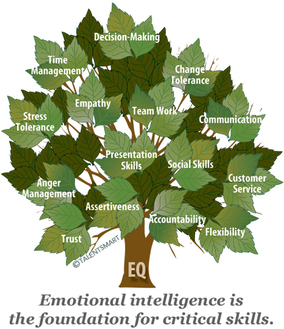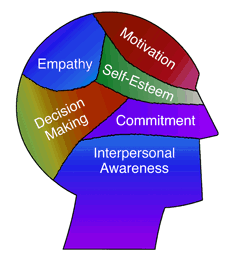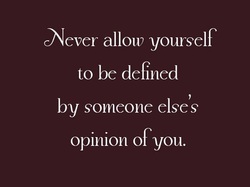
 I've heard a saying in the leadership and management consulting arena. You can provide reminders as an example of effective time management skills and the value of creating checklists and systems, but you will encounter those who see these reminders as your commitment to managing their time. Choose wisely.
0 Comments
 Wall Street Journal ROSABETH MOSS KANTER: If your company is doing well, look in inside. If your company is slipping and falling, that might be a sign that the company has done too much looking inside. Companies that become insular, ignore dissenting voices, and fail to anticipate market trends might want to look outside for new talent and fresh views. Finding a CEO from within the company is associated with strong performance, as research by my Harvard Business School colleague Joseph Bower shows. This certainly offers the virtues of continuity, smooth succession handoffs, and in-house knowledge. Smooth succession is a winner’s advantage that helps keep a company on a winning streak. For example, I’m impressed by the way Verizon handled the succession from Ivan Seidenberg to Lowell McAdam. There was a long board-led selection process, a long period of Seidenberg and McAdam working together, and then a seamless transition to McAdam as he took on the CEO role and later added Chairman. Companies in trouble—on losing streaks and in need of turnarounds—benefit from experienced outsiders who bring fresh perspectives, put the facts on the table dispassionately, and craft new strategies without feeling that they must defend past actions. In my book, “Confidence: How Winning Streaks and Losing Streaks Being and End,” I describe many companies that had long promoted from within but realized that declining performance required an external hire as CEO—Gillette is one example. Insiders who thought they were next in line for the CEO job are certainly disappointed, but they can be persuaded to stay if the upside is compelling enough. And one of the actions of a great turnaround leader is to empower people throughout the company to increase their own leadership potential, thus improving performance and making it more likely that one of those insiders can be CEO next time around. Rosabeth Moss Kanter (@RosabethKanter) holds the Ernest L. Arbuckle professorship at Harvard Business School, where she specializes in strategy, innovation and leadership for change.  It's been a while since I've blogged. No excuses beyond being busy. What compelled me to do so today was an article I read on LinkedIn by Dr. Travis Bradberry, the award-winning co-author of the #1 bestselling book, Emotional Intelligence 2.0, and the cofounder of TalentSmart, the world's leading provider of emotional intelligence tests and training, serving more than 75% of Fortune 500 companies. His bestselling books have been translated into 25 languages and are available in more than 150 countries. Dr. Bradberry has written for, or been covered by, Newsweek, BusinessWeek, Fortune, Forbes, Fast Company, Inc., USA Today, The Wall Street Journal, The Washington Post, and The Harvard Business Review. Emotional intelligence is dissected and explored with increasing frequency, particularly as many discover that academic success or (the standard definition of) intelligence aren't sufficient indicators for productivity, high performance, or all around excellence. The long and short of it is you really want to read the article. This was originally posted in Inc Magazine, and too good not to share forward. Even if you never admit this to others, if you see yourself below use that as a first step towards self-improvement. -Doña Keating  7 Signs You're Not as Self-Aware as You Think BY STEVE TOBAK Self-awareness is a really big deal for everyone, especially executives and business leaders. Failure to face reality can destroy your career and your company. Being in the advice giving game isn't all it's cracked up to be. It's not like you get to sit on a mountaintop and just rain down pearls of wisdom on your clients. When it comes to executives and business leaders, it's almost never that black and white. Granted, there are times when people are genuinely open to the voice of experience and perhaps a little objectivity. Then there's the opposite extreme: deep denial. Where they don't want to hear the truth no matter what you say or how you say it. And in between those black and white peaks is a vast plane of gray, where people sort of know, deep down, what they need to do but something's stopping them from doing it. That something is almost always beneath the surface, meaning it isn't easy to get to and folks will often confound, thwart, or downright resist the effort. The truth is there are lots of paths people take to avoid confronting whatever it is they don't want to confront. And those paths can lead to career demise or business destruction. No kidding. Here are seven signs you may be heading down the latter path. You're a bully. If you didn't have emotions, you wouldn't be human. Feelings are important guidance mechanisms. Anger and aggression are no different. They're signs that you feel threatened or scared. You go on the offensive and bully to protect something deep within you, something you don't want people to see, often feelings of weakness and vulnerability. Ironic, isn't it? You're defensive. When chief executives resist a consultant or executive coach who wants to meet with their staff or outside directors one-on-one, when genuine and objective feedback makes them agitated or even angry, that's a sure sign. I'm not even sure why they call it "defensive, since defensive people almost always deflect by going on the offensive. You're controlling. When you behave in a controlling way--when you micromanage, pick on the little things--it usually means you're not dealing with a big thing that's really bugging you. It means you're not paying attention to something really important. Left unchecked, that can definitely take you down a dark path. You're passive aggressive. When you say, "Sure, no problem," then turn around and do the exact opposite, it means you don't want to confront others or be confronted by them. It's a deflection, an attempt to throw them off the scent so you don't have to deal with something that affects you deeply. Again, it's usually something you're not consciously aware of, something that makes you feel vulnerable or embarrassed. Click here to read full original article...
 I recently read a community column about problem solvers in action. Though the end portion of the article was an excellent example of assistance to those who'd lost their homes to a Christmas Eve fire, the prelude characterised its participants as a rare and misunderstood breed of problem solvers. This was followed by indirect and derogatory references to fragile egos, judgmental spectators, and less than "solid contributors" who presumably didn't have the mettle to deal with the aggressive, abrupt or rude behaviour of the valiant SuperVolunteer crew. These problem solvers were too focused on 'moving the ball forward' to worry about popularity or acknowledgment for their efforts (self-aggrandising article notwithstanding), or unmentionables who perceived the doers as a threat to personal fiefdoms. Unlike those looking to 'control the system to their advantage', the Problem Solvers were part of the solution. Years ago, Harvard Business Review published a portion of W.C.H. Prentice's 1961 article about understanding leadership. Though dated, its insights remain spot on and prophetic - and he gets straight to the salient point upfront by offering that 'leaders succeed when they learn two basic lessons: people are complex, and different'. He further suggests: "He may not possess or display power; force or the threat of harm may never enter into his dealings. He may not be popular; his followers may never do what he wishes out of love or admiration for him. He may not ever be a colorful person; he may never use memorable devices to dramatize the purposes of his group or to focus attention on his leadership. As for the important matter of setting goals, he may actually be a man of little influence, or even of little skill; as a leader he may merely carry out the plans of others. His unique achievement is a human and social one which stems from his understanding of his fellow workers and the relationship of their individual goals to the group goal that he must carry out."  Prentice isn't just referring to being nice, but using a wide range of socio-emotionally intelligent skills. The military is an example of a hierarchical structure wherein one must follow commands without question, but in most other environments a leader's success is closely tied to his or her ability to tap into individual motivations and achieve wide-reaching goals. I can be quite straightforward, and certainly appreciate the consequences of this - criticism, retaliation, mischaracterisation. However, I also recognise that too much of that approach, particularly if rude or lacking in tact, can result in one-dimensionality and limited effectiveness. Thus, the community columnist is entitled to her opinion and vent, but there is cognitive dissonance and confirmation bias in her dystopian-saviour scenario which undermined her message. The charitable actions described in the column are a reactive contribution. A proactive one might be efforts to improve conditions so that residents can afford to purchase space heaters that don’t malfunction and kill them, such as improving economic and educational opportunities. We can treat symptoms of problems, their essence - or both. Teaching a man to fish has different consequences than bringing him meals. Is one better or more necessary than the other? It depends. But in failing to acknowledge the benefit of both in the 'doer' ecosystem, the columnist missed an opportunity to mobilise a community. Instead, she squandered it on prose which attempted to manipulate a situation to her advantage, create a 'problem solvers' fiefdom, and seek the very acknowledgment she claimed not to need. Ultimately, this contradictory misfire weakened her credibility. Maslow's Hammer (also known as Law of the Instrument or Law of the Hammer) is the concept of over-reliance on a familiar modus operandi. "If all you have is a hammer, everything looks like a nail" is a common quote to describe this tendency. Problem-solving is a critical and necessary tool to have in one's box, but this point of reference generally depends on the initial actions and failures of someone else, or a mindset of waiting for something to go wrong before engaging. There can be much lower risk in fixing mistakes than being the architect, and easier to throw stones at a house than to build one. Are there valid reasons to separate oneself from the pack and move forward? Indeed. Many of us do it often because we prefer to get things done, and there are armchair critics or analysis paralysis environments that hinder. Is there nobility in civic service, elected or otherwise? Absolutely. However, the approach by the columnist looks less like altruism, and begins to appear as if preying on tragedies, the downtrodden, or 'problems to solve' is more of a publicity stunt. Either way, it's a missed opportunity to exhibit true leadership.  Many years ago, I concluded: (1) What others think of me is none of my business; and (2) Never allow yourself to be defined by someone else's opinion of you. That being said, we are in a constant energy dance with ourselves and others towards higher understanding. It requires a great deal of courage and self-awareness to take responsibility for our behaviour - whether through word or deed - and acknowledge how it might impact the world around us. My lengthy career has involved providing strategic advice and counsel to public and private sector leaders around the world. What they all share is a willingness to explore, admit, and rectify where they've all fallen short. Those sessions are not always happy occasions, but they are straightforward, not taken personally, and all parties emerge from the room ready for a cigar, scotch, game of squash, or rounds of golf. Though an assessment or opinion doesn't define us, the belief that one is in an ivory hierarchical tower and beyond reproach is sorely misplaced. Imperfection is not synonymous with a fatally flawed personal or business model. Validate the origin of advice, but embrace opportunities to learn about and improve methodology, leadership, or process efficiency. |
Categories
All
|

 RSS Feed
RSS Feed
